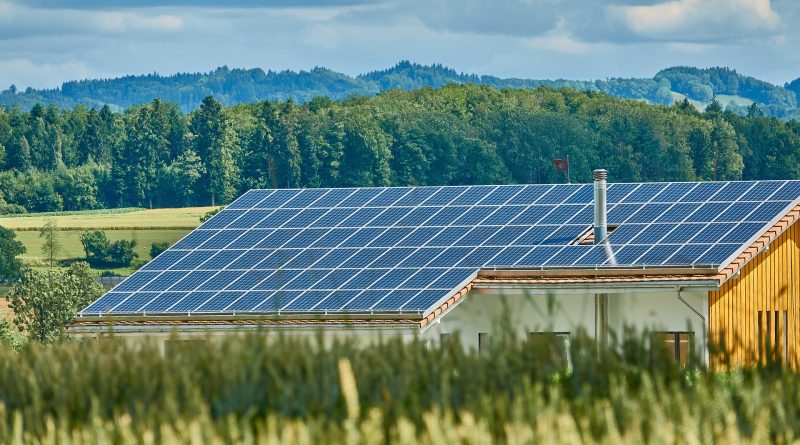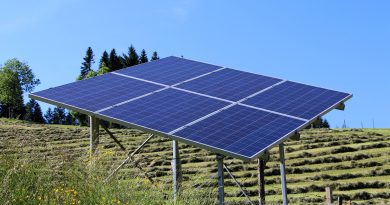Solar Energy Insights: A Deep Dive
The Advantages of Solar Energy in Today’s World
Solar energy, also known as renewable energy, is becoming increasingly popular as a viable alternative to traditional energy sources. With rising concerns over climate change and the rapid depletion of fossil fuels, many countries are turning to solar power as a sustainable and clean energy solution. In this blog, we will explore the various advantages of solar energy and its positive impact on our environment and economy.
1. Renewable Energy Source
Solar energy is a renewable energy source, meaning it is continuously replenished and available abundantly. Unlike fossil fuels such as coal, oil, and natural gas, which are finite resources, the sun is an inexhaustible source of energy. By harnessing solar power, we reduce our dependence on non-renewable resources and move towards a more sustainable future.
Moreover, solar energy is available everywhere on Earth. Although the amount of sunlight received varies at different locations, solar panels can still generate electricity even on cloudy days. This versatility makes solar energy a viable option for both urban and rural areas, enabling access to power in remote locations.
2. Clean and Environmentally Friendly
Solar energy is a clean and environmentally friendly alternative to conventional energy sources. The process of harnessing solar power does not produce harmful greenhouse gases or air pollutants, unlike coal-fired power plants or gas-powered generators. This significantly reduces the carbon footprint associated with electricity generation and helps combat climate change.
Furthermore, solar energy production does not require massive mining operations or drilling for fossil fuels, which can have detrimental effects on ecosystems. By choosing solar energy, we can protect the environment, preserve natural habitats, and reduce water consumption as solar panels do not require water for operation, unlike traditional power plants.
3. Lower Energy Bills and Financial Savings
Installing solar panels on residential and commercial buildings can lead to substantial financial savings in the long run. Although the initial investment may seem high, solar energy systems have a long lifespan and come with minimal maintenance costs. Once installed, solar panels generate electricity at no additional cost, significantly reducing or eliminating monthly utility bills.
In some cases, households that produce surplus energy can even sell it back to the grid, through a process called net metering. This allows homeowners to earn money from their rooftop solar panels, making solar energy an attractive investment. Additionally, governments and agencies often provide incentives, such as tax credits or grants, that further reduce the overall cost of installing solar systems.
4. Job Creation and Economic Growth
As solar energy gains popularity, the industry continues to grow and create new job opportunities. The installation, maintenance, and manufacturing of solar panels stimulate local economies and provide employment for a wide range of skill sets. This job creation benefits both urban and rural areas, promoting economic growth, and reducing unemployment rates.
Furthermore, solar energy production reduces reliance on imported fossil fuels, which can be subject to shifting geopolitical dynamics and price fluctuations. By embracing solar power, countries can enhance their energy security, reduce trade deficits, and promote domestic energy production. This creates a more stable and self-sufficient economy.
5. Technological Advancements and Innovation
The growing demand for solar energy has fueled rapid advancements in photovoltaic technology. Solar panels are becoming more efficient, durable, and cost-effective. New materials and manufacturing techniques are continuously being developed, making solar power an increasingly viable option for various applications.
Additionally, research and development in solar energy are driving innovation in energy storage systems, such as batteries. These advancements in storage technology are crucial for enabling the integration of solar power into the grid, ensuring a continuous supply of electricity even during cloudy periods or at night. As solar energy becomes more reliable and accessible, it has the potential to revolutionize the way we generate and consume electricity.
Conclusion
Dive into the world of solar energy with SolarClue® as your deep-dive guide. Explore the key benefits of harnessing solar power for residential and commercial users in 2024. Understand the environmental impact, reduced carbon footprint, and sustainability aspects of solar energy adoption. Learn about technological advancements enhancing efficiency and cost-effectiveness. Gain insights into the financial aspects, including potential savings, return on investment, and government incentives. Stay informed about the latest trends and developments in solar technology. Receive guidance in choosing the right solar system based on your needs. Let SolarClue® dispel myths, address concerns, and provide accurate information. Join our community for shared experiences and ongoing learning on your solar energy journey.
Frequently Asked Questions
SolarClue® highlights the benefits of solar energy, providing insights into the advantages of transitioning to solar power for both residential and commercial users in 2024.
SolarClue® educates users about the environmental impact of solar energy, providing information on reduced carbon footprints and other sustainability aspects associated with solar power adoption in 2024.
SolarClue® explains technological advancements in solar energy systems, detailing innovations and improvements contributing to increased efficiency and cost-effectiveness for users in 2024.
SolarClue® assists users in understanding the financial aspects of solar energy adoption, including potential savings, return on investment, and government incentives available in 2024.
SolarClue® provides information on the latest trends and developments in solar energy technology, helping users stay informed about emerging solutions and best practices in 2024.
SolarClue® guides users in choosing the right solar energy system for their specific needs, considering factors like energy consumption, available space, and budget constraints in 2024.
SolarClue® addresses common concerns or misconceptions about solar energy, providing accurate information and dispelling myths to empower users with a clear understanding of the technology in 2024.
SolarClue® supports users in the planning and decision-making process for adopting solar energy, offering resources, tools, and expert advice to ensure a smooth transition in 2024.
SolarClue® fosters a community where users share experiences and insights related to their solar energy journeys, creating a collaborative platform for ongoing learning and knowledge exchange.
SolarClue® stays updated on the regulatory landscape and policy changes related to solar energy, ensuring users receive accurate information about incentives, regulations, and support mechanisms in 2024.




